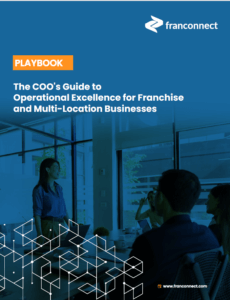Franchise business consultants have always been critical drivers of brand success, but their role has shifted considerably over the years and continues to evolve today.
Ten or 20 years ago, FBCs’ primary role was to ensure operational compliance. Protecting brand consistency is still essential, but most FBCs are now equally focused on coaching to improve performance. Coaching can be informal, but we find that the most effective FBC–franchisee relationships fall toward the more formal, data-driven side of the spectrum.
During the pandemic, many brands increased their FBCs’ spans of control. That occurred, in part, because FBCs were conducting virtual visits mostly or exclusively, and they had more bandwidth as a result. On average, FBCs now manage a network of about 34 franchisees.
Together, these shifts have created an opportunity — and a best practice — for FBCs to deliver coaching through more structured, consistent business planning with their franchisees. The most effective FBCs strategically blend coaching and compliance; leverage data and technology to develop collaborative action plans; and carry out their work using a mix of in-person and virtual visits.
Better Data Increases Visibility and Supports Formal Performance Plans
One of the biggest differentiators among franchisors is the use of software that increases visibility across FBCs’ spans of control and allows for granular analysis of locations, both individually and as a group. These solutions aggregate all the key performance metrics into a single, easy-to-digest dashboard. This increases visibility significantly, and it helps to address data overload. Rather than consulting all the various systems that inform KPIs, FBCs can use a single solution to monitor franchisees, develop action plans and track progress.
Before the FBC even goes to a location or arrives at a virtual meeting, they have all the necessary data at their fingertips. They know the franchisee’s sales, customer satisfaction scores, labor costs and other metrics. Rather than relying on a perception, such as “I think your labor costs are a bit high,” the FBC knows exactly where the metric stands. They can say, for instance, “This location is 20% higher than every other location of the same age and the same square footage.”
More granular analysis leads, in turn, to more robust conversations with franchisees and more effective corrective action. If the FBC identifies a weakness — too-high food costs, for instance — he or she can have the franchisee take specific steps to address the problem. When they meet for a follow-up review, they’ll have the benefit of data to evaluate whether those actions moved the needle.
Although brands fall all along the spectrum in their approach to business planning, the most successful ones are leveraging technology to establish structured programs that utilize both data and coaching to achieve desired results.
Hybrid Oversight Blends the Best of Both In-Person and Virtual Visits
Due to COVID-19, many franchisors have been pleasantly surprised to discover that converting in-person visits to virtual check-ins offers advantages. Less travel reduced expenses and enabled FBCs to have more frequent, shorter touchpoints with their franchisees. That made it easier to course-correct. Larger spans of control gave FBCs broader visibility, which allowed them to identify trends (positive and negative) and disseminate best practices more quickly.
Today, some brands are electing to keep all their coaching virtual and to hire food safety auditors to visit units in person. There’s value in that, particularly from a cost savings perspective, but it’s not necessarily the best option. Over time, there is a risk that fully virtual oversight will lead to slippage in brand consistency. Other brands are reverting to their pre-pandemic method of having FBCs do most or all of their work in person.
Our research suggests that the best approach is hybrid. FBCs would visit franchisees in person for perhaps three-quarters of their touchpoints, with the remaining visit a virtual session focused on coaching. That allows franchisors to retain a portion of the cost savings without compromising FBCs’ compliance function or their coaching capability.
The Right Tools Allow FBCs to Focus on Strategic Objectives
FBCs’ role is unique in that they wear multiple hats. They must understand the strategic initiatives of the franchisor to make sure these get deployed at the franchisee level. They also need to make the franchisee feel they’re there for them to improve their business. The best FBCs meet these demands by being versatile; they are analytical enough to understand the strengths and limitations of franchisees and their locations, and to adapt their approach accordingly.
A franchisee who’s a great salesperson, for example, may shine when it comes to making customers happy. But if they’re not financially savvy, they may drop in profitability. Another franchisee may be an introvert who’s always on top of the numbers, but struggles to manage employees. The skilled FBC will work differently with each individual to achieve the same end: better performance, better metrics.
It’s almost impossible to overstate the importance of the FBC, as both a coach for individual franchisees and as a liaison with the brand as a whole. Make sure that your FBC program, including the tools that support them on the job, puts them in the best position to help franchisees succeed.
FranConnect’s first-ever Franchise Operations Index provides a deep analysis of the quickly-evolving role of the Franchise Business Consultant. Download it now to see critical insights for Operations Executives and Franchise Leaders who need to benchmark their performance and refine their strategies for 2021 and beyond.





 Ian Walsh
Ian Walsh








